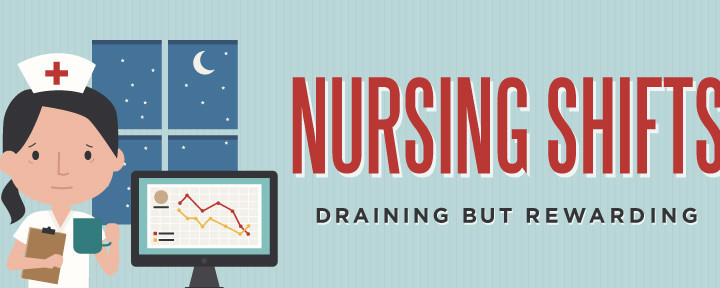While most of your friends are finally home and relaxing, you’re just getting dressed and preparing for another long shift at work. Unlike others with a 9am-5pm job, nursing is a 24 hours a day job as patients do not choose a specific time to get sick. Any time of the day, there will always be patients who seek healthcare attention.
We nurses, work in flexible shifts, which may be beneficial for some and a bit troublesome for the others. According to the Australian Journal of Advanced Nursing in 2003, over one million people worked a night shift in the four weeks prior to the questionnaire and 46 percent had worked a rotating shift. Also, health workers make up 32.3 percent of shift workers in Australia, and nurses make up the largest group of health workers.
So what are the effects of shift work in nursing?
Circadian rhythm
Of the many effects of shift work, this one ranks on top of the list for most nurses. According to scientific studies, shift work affects both sleep and waking by disrupting circadian regulation, familial and social life. Furthermore, sleep obtained during the day or at irregular times is of poorer quality than that obtained during normal nighttime sleep and lack of sleep can make one more vulnerable to illness.
Health
Evidence of high risk for substantial behavioral and health-related morbidity is linked to sleep disorders among shift workers. Studies also show that shift workers with sleep disorders have higher rates of cardiovascular diseases and digestive tract problems. Furthermore, research into the effect on professionals has steadily identified a range of negative outcomes in physical, psychological, and social areas. Studies also show that the morbidity related to sleep disorders among shift workers was suggestively greater than that experienced by daytime workers with identical symptoms. Examples of which are sleep-related accidents, depression, absenteeism, and missed family and social activities.
Performance
Maintaining adequate levels of performance has also become a concern for shift workers. While some studies reveal no association between performance and shift work, there are also others contradict this by linking errors and performance with shift work.
Gold and colleagues (1992), for example, stated that the main factor related with medical errors was shift work, whereas Rouch, Wild, Ansiau, and Marquie (2005) revealed short-term memory disturbances related to circadian rhythm disruption caused by shift work. However, 4 years after workers stopped working shifts, performance seemed to improve, which suggests a probable reversibility of effects.
Social Isolation
Working shifts can also result to social isolation due to the reason that most events take place during the day when shift workers are trying to sleep. Just like the situation presented above, while the others are trying to relax and get some sleep after a log-day’s work, you’re just getting started with your own. On the other hand, while they’re all up and ready to go to work and or go to social gatherings, you’re just about to hit the sack.
Bad habits
Shift workers, especially those working during night shift tend to develop habits such as eating things that are high in fat and sodium, consuming too much caffeine, smoking and drinking alcohol which can then lead to health problems as availability of healthy food is often quite limited. However, there is also a study published in “Nursing Economics” in 2008 which found that working shifts does not lead to an adverse impact on health, absenteeism or performance when compared to those who claimed adaption to shift work or worked only day shifts.
Despite all these cons, there are also cons when it comes to shift work. There is extra monetary compensation as swing and graveyard shifts are often paid a nighttime differential. Autonomy is also gained as shift workers often perform their duties with less supervision. Lastly, there is reduced workload since night shifts are often not as busy as their daytime equivalents.
Sources:
- https://www.ausmed.com.au/blog/entry/shift-work-nursing
- https://www.medscape.com/viewarticle/580650_2
- https://www.kalispellregional.org/data/content/Shift%20Work.pdf







